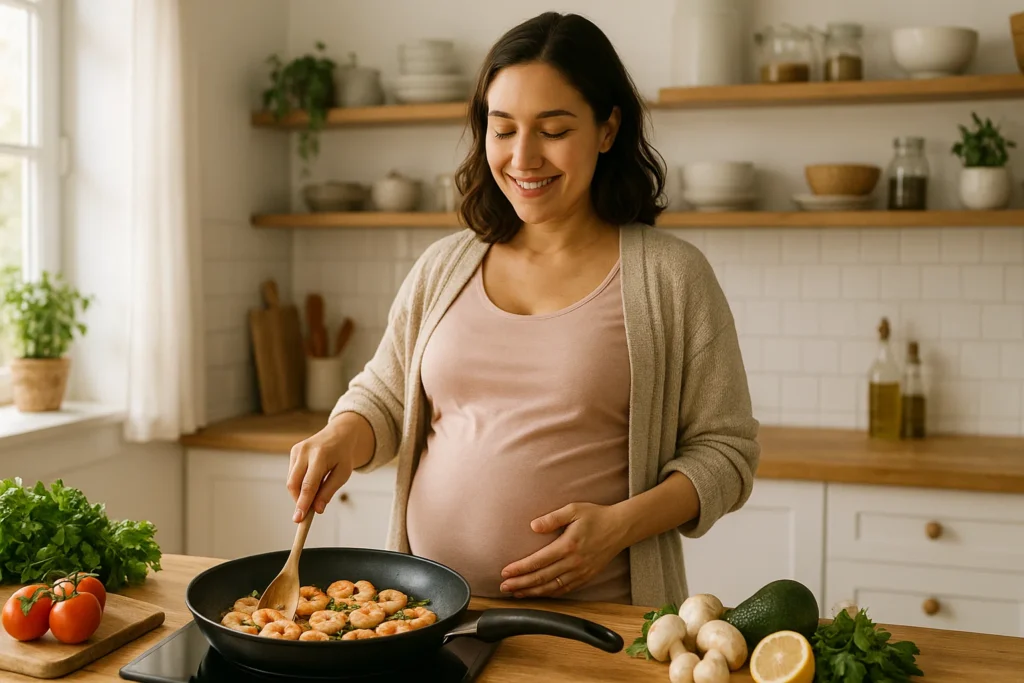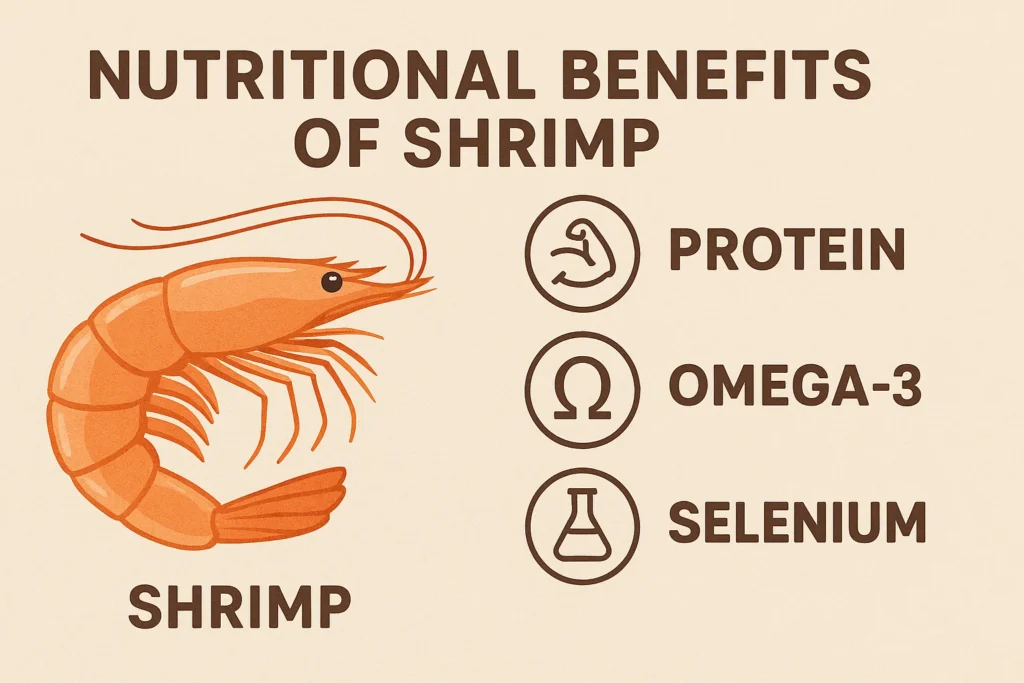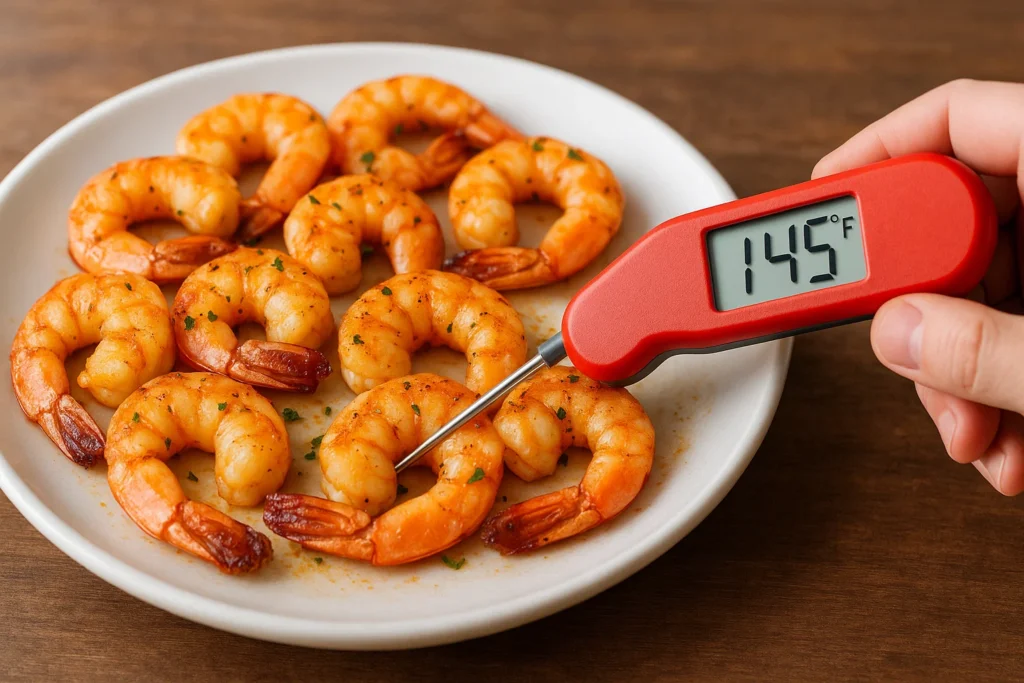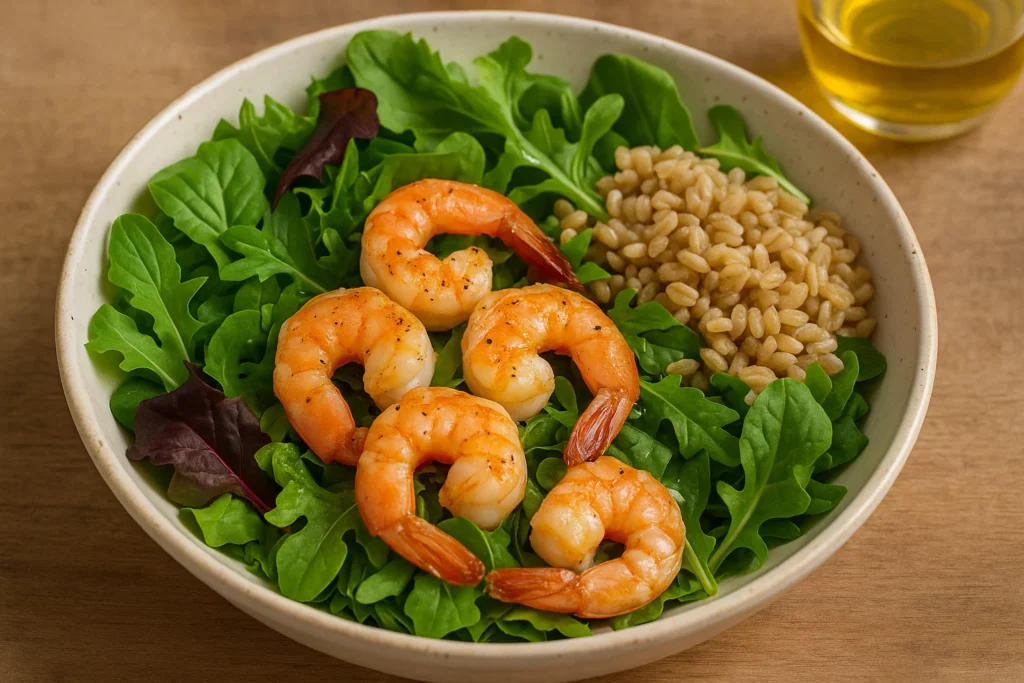
Yes, you can eat shrimp while pregnant—as long as it’s fully cooked and consumed in moderation. Shrimp is a low-mercury seafood rich in protein, omega-3 fatty acids, and essential nutrients that support your baby’s development. However, certain precautions are necessary to ensure safety for both you and your baby.
🦐 Is Shrimp Safe During Pregnancy?
Yes, shrimp is considered safe to eat during pregnancy. It contains low levels of mercury, making it a safer seafood choice compared to high-mercury fish like swordfish or king mackerel . The U.S. Food and Drug Administration (FDA) and Environmental Protection Agency (EPA) recommend that pregnant individuals consume 8–12 ounces (approximately two to three servings) of low-mercury seafood per week, which includes shrimp .
🌟 Nutritional Benefits of Shrimp During Pregnancy
Shrimp offers several health benefits for expectant mothers:
High-Quality Protein: Supports fetal tissue growth and maternal muscle health.healthline.com
Omega-3 Fatty Acids (EPA and DHA): Essential for fetal brain and eye development health.com
Vitamins and Minerals: Provides vitamin B12, selenium, zinc, and iodine, which are crucial for both maternal health and fetal development.
Incorporating shrimp into a balanced diet can contribute to meeting the increased nutritional needs during pregnancy.

⚠️ Safety Precautions When Eating Shrimp
To minimize risks:
Cook Thoroughly: Ensure shrimp is cooked to an internal temperature of 145°F (62.8°C). Proper cooking eliminates harmful bacteria and parasites .medicalnewstoday.com
Avoid Raw or Undercooked Shrimp: Consuming raw shrimp can expose you to pathogens like Listeria and Salmonella, which are particularly dangerous during pregnancy healthline.com
Limit Intake: Stick to the recommended 8–12 ounces of low-mercury seafood per week to avoid potential mercury accumulation.medicalnewstoday.com
Be Cautious with Allergies: If you have a known shellfish allergy, avoid shrimp entirely.
📝 Tips for Including Shrimp in Your Pregnancy Diet
Opt for Grilled or Steamed Preparations: These methods retain nutrients without adding excessive fats.
Incorporate into Balanced Meals: Combine shrimp with whole grains, vegetables, and healthy fats for a well-rounded meal.
Diversify Seafood Choices: Include other low-mercury fish like salmon, tilapia, and cod to vary nutrient intake healthline

Detailed breakdown of the key minerals and nutrients in shrimp that are especially important during pregnancy.
🧠 1. Omega-3 Fatty Acids (Especially DHA and EPA)
What it is:
Omega-3s are essential fats that support brain and eye development in the fetus. The two most important types for pregnancy are DHA (docosahexaenoic acid) and EPA (eicosapentaenoic acid).
Benefits:
Boosts fetal brain development
Lowers risk of premature birth
May reduce risk of postpartum depression
Supports healthy vision in newborns
Found in:
Shrimp
Salmon, sardines, and mackerel
Flaxseeds (for ALA type)
Walnuts
Omega-3 supplements (consult doctor during pregnancy)
📌 External link: Omega-3s in pregnancy – American Pregnancy Association
🧂 2. Iodine
What it is:
Iodine is a mineral your body uses to make thyroid hormones, which are critical for your baby’s brain development.
Benefits:
Prevents mental and growth delays in the baby
Supports the mother’s thyroid function
Found in:
Shrimp and other seafood
Iodized salt
Dairy products
Eggs
📌 External link: CDC on Iodine and Pregnancy
💪 3. Protein
What it is:
Protein builds and repairs tissues and is crucial for fetal development, especially in the second and third trimesters.
Benefits:
Supports baby’s growth
Helps in producing new cells and hormones
Supports placenta and maternal tissue development
Found in:
Shrimp
Chicken, turkey, eggs
Lentils and chickpeas
Greek yogurt
🛡️ 4. Zinc
What it is:
Zinc supports the immune system and plays a role in cell division and growth, both critical during pregnancy.
Benefits:
Boosts immune function
Supports DNA synthesis and fetal development
Aids in wound healing and enzyme function
Found in:
Shrimp
Red meat
Pumpkin seeds
Whole grains
Fortified cereals
📌 External link: Zinc in Pregnancy – NIH
🧬 5. Iron
What it is:
Iron is essential for making hemoglobin, the molecule in red blood cells that carries oxygen. Pregnant women need more iron due to increased blood volume.
Benefits:
Prevents anemia
Supports baby’s growth and development
Helps form the placenta and fetal blood supply
Found in:
Shrimp
Spinach
Red meat and liver
Beans and lentils
Fortified cereals (pair with vitamin C for better absorption)
📌 External link: Iron During Pregnancy – March of Dimes
🔄 6. Choline
What it is:
Choline is a nutrient similar to B vitamins and is vital for brain development and spinal cord formation.
Benefits:
Prevents neural tube defects
Enhances cognitive development
Helps with placenta function
Found in:
Shrimp
Eggs (especially yolk)
Chicken
Milk
📌 External link: Choline in Pregnancy – NIH
🧠 7. Vitamin B12
What it is:
B12 helps in the formation of red blood cells and the proper functioning of the nervous system.
Benefits:
Prevents birth defects
Supports development of baby’s nervous system
Helps with maternal energy and mood
Found in:
Shrimp
Fish and meat
Eggs and dairy
Fortified plant-based milk
📌 External link: B12 in Pregnancy – NHS UK
🛡️ 8. Selenium
What is Selenium?
Selenium is a trace mineral that acts as a powerful antioxidant, protecting cells from damage. It’s crucial for healthy thyroid function, immune response, and reproductive health. During pregnancy, selenium supports the development of the baby’s brain and immune system.
✅ Benefits of Selenium During Pregnancy:
Reduces oxidative stress: Protects both maternal and fetal cells from free radical damage.
Supports thyroid health: Essential for the synthesis of thyroid hormones which are vital for fetal brain development.
Boosts immunity: Helps maintain the mother’s immune response, reducing the risk of infections.
May reduce complications: Low selenium levels have been linked to a higher risk of preeclampsia, miscarriage, and gestational diabetes (studies ongoing).
🥗 Natural Food Sources of Selenium:
Shrimp 🦐 (Excellent source)
Brazil nuts (very high – 1–2 nuts can provide daily requirement)
Tuna and sardines
Eggs
Whole grains (like brown rice, oats)
Sunflower seeds
🧪 Recommended Intake:
The recommended dietary allowance (RDA) for selenium during pregnancy is around 60 micrograms/day.
Important: Do not exceed 400 micrograms/day, as selenium toxicity is possible with high supplemental doses.
📌 Trusted External Source:
👉 NIH Selenium Fact Sheet
👉 Selenium & Pregnancy – American Pregnancy Association

✅ Conclusion
Eating shrimp during pregnancy is safe and beneficial when properly cooked and consumed in recommended amounts. Its rich nutritional profile supports both maternal health and fetal development. Always ensure shrimp is thoroughly cooked, and consult with your healthcare provider if you have any concerns about including seafood in your diet.
For more information on seafood safety during pregnancy, refer to the FDA’s guidelines on eating fish.
Frequently Asked Questions (FAQs)
Yes, you can eat fully cooked shrimp in the first trimester. It provides important nutrients like protein and omega-3s essential for early fetal development.
According to the FDA, 8–12 ounces of low-mercury seafood (including shrimp) per week is safe—this equals about 2–3 servings.
Excess mercury may lead to developmental issues in the baby, including brain and nervous system damage. Symptoms in adults can include fatigue, memory loss, and tremors.
Yes, as long as it’s stored properly and cooked thoroughly to kill bacteria. Avoid previously frozen shrimp that has been thawed and refrozen.
Yes, if the shrimp is fully cooked. However, fried foods are high in unhealthy fats, so moderation is key.
Related Keywords
can pregnant women eat shrimp, is shrimp safe in pregnancy, shrimp during pregnancy first trimester, shrimp and pregnancy, eating seafood while pregnant, low mercury seafood pregnancy, omega-3 for pregnancy, pregnancy safe seafood, benefits of shrimp in pregnancy, how much shrimp during pregnancy, can I eat shrimp cocktail when pregnant
